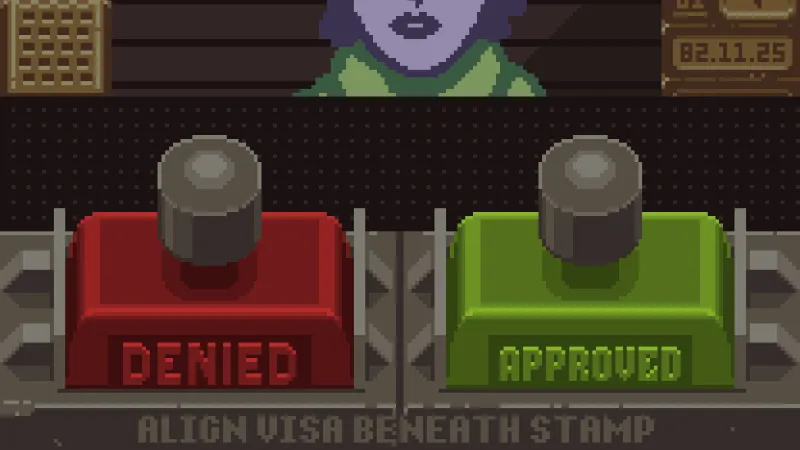
Before we read and wrote, we moved. Stories of people moving – migrating – have been told since time immemorial. The Mexica journey to central Mexico; Moses leading the Jewish people across the desert; the founding of Rome – as told by Virgil – by those that fled the fall of Troy. Unsurprisingly, then, video games also tell stories of migration. On August 8, 2013, game designer Lucas Pope, the man behind the studio 3909, released Papers, Please, a game about managing migration.

Papers, Please, subtitled “A Dystopian Document Thriller,” was for some the first time they played a game whose core design ethos challenged their worldviews and understanding. Other games have placed the topic of migration front and center. Path Out (Causa Creations, 2014), an adventure game that retells the journey of Abdullah Karam, a young Syrian artist who escapes the country’s decade-long civil war in 2014; and Escape from Woomera (2003), a game about a refugee, Mustafa, stuck in the infamous Woomera Immigration Reception and Processing Centre in South Australia, are two stand-outs. Papers, Please tackles the subject from a different perspective. You play an inspector examining documents, determining whether a person can enter the fictional country of Arstotzka.
A decade after its release, the bureaucratic nightmare in Papers, Please is an increasing reality for many around the world. We see this on the news: anguished faces looking for prospects either fleeing war, environmental catastrophe, or lack of economic and social opportunities. According to the Migration Policy Institute, at the end of 2022, over 100 million people were displaced globally. Along with revisiting Papers, Please, I interviewed Pope for his perspective on the game 10 years on. I also talked to former United States diplomat Josef Burton, who worked in several consulates and embassies around the world processing visa applications, for his thoughts on the game.
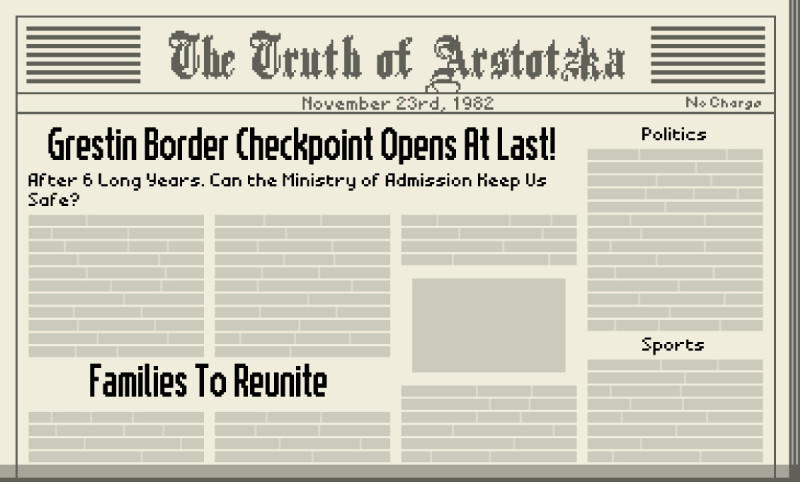
Papers, Please is an odd commercial success. According to Pope, the indie game sold over five million copies across all platforms between August 8, 2013 and August 8, 2023. It also received numerous awards and acclaim from players and critics alike. It’s one of only 36 video games in the Museum of Modern Art’s permanent collection, alongside Tetris, Street Fighter II, and Portal. Pope feels he owes his career to the game. “It’s hard to look back and be anything but proud of it,” he says. “It’s not perfect, and maintaining it for 10 years gave me a good look at that, but I still consider it my best work so far.” High praise considering Pope also released the critically acclaimed Return of the Obra Dinn in 2018.
The game’s visuals and themes are heavily influenced by the last decade of the Cold War. Its story shares much in common with the books of John le Carré, where spies – really just bureaucrats – are placed in impossible situations within geo-political struggles with grand implications. Most don’t survive. If they do, the price paid for completing their work is often too high. The same is true of The Inspector in Papers, Please. The game turns the player into a villain or anti-hero.
At the beginning of the game, progress depends on how well you follow a handbook of rules and regulations created by Arstotzka’s Ministry of Admission. As you play, the work of Custom and Border Protection officials stops being an abstraction. Players must protect the border and not allow those unauthorized by the Arstotzka’s Ministry of Admission to enter; thus, you make cold and crucial determinations about people’s futures. This sort of determination is made every day across borders all over the real world.
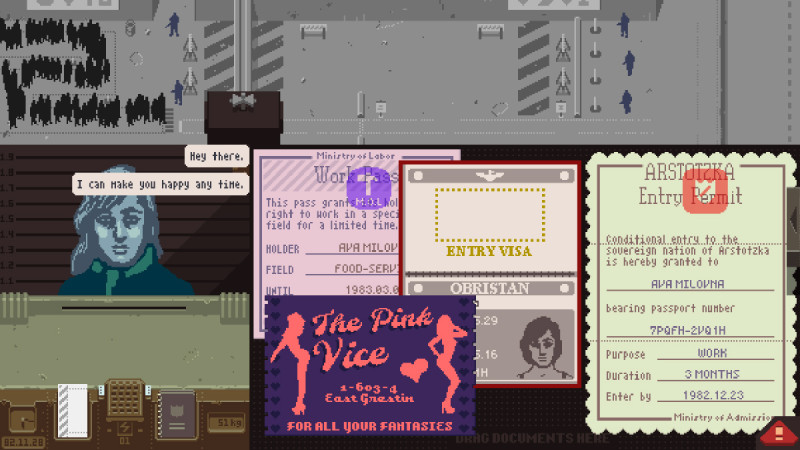
Migration stories are enthralling. Migrants, refugees, and asylees are – in the sincerest sense of the word – the first entrepreneurs. Papers, Please is an important game because it contextualizes the broader issues relating to migration enforcement in a visceral and tangible way. The point is not to moralize but to tell a story via interactive means. Players who can stomach playing as the inspector get a view of Pope’s vision of a dystopian altered reality inspired by former Communist Bloc nations.
Burton has mixed feelings about the game and its portrayal of immigration control. “The fantasy of Papers, Please is brutal because you’re this inhuman bureaucrat,” he says. “There’s this plotting, droning music […] and there is this dystopic kind of feeling like in the first level of Half-Life 2. You’re like, ‘No, absolutely not! Let’s examine your papers. You don’t have enough papers.’ I think that we’ve departed from that. What I would take away from my time at the State Department, in the Foreign Service, and in Consular Affairs is that it’s much more insidious than you would think. In seven and a half years, I only caught one person based on just documents. And that case was a really sloppy attempt at identity theft.”
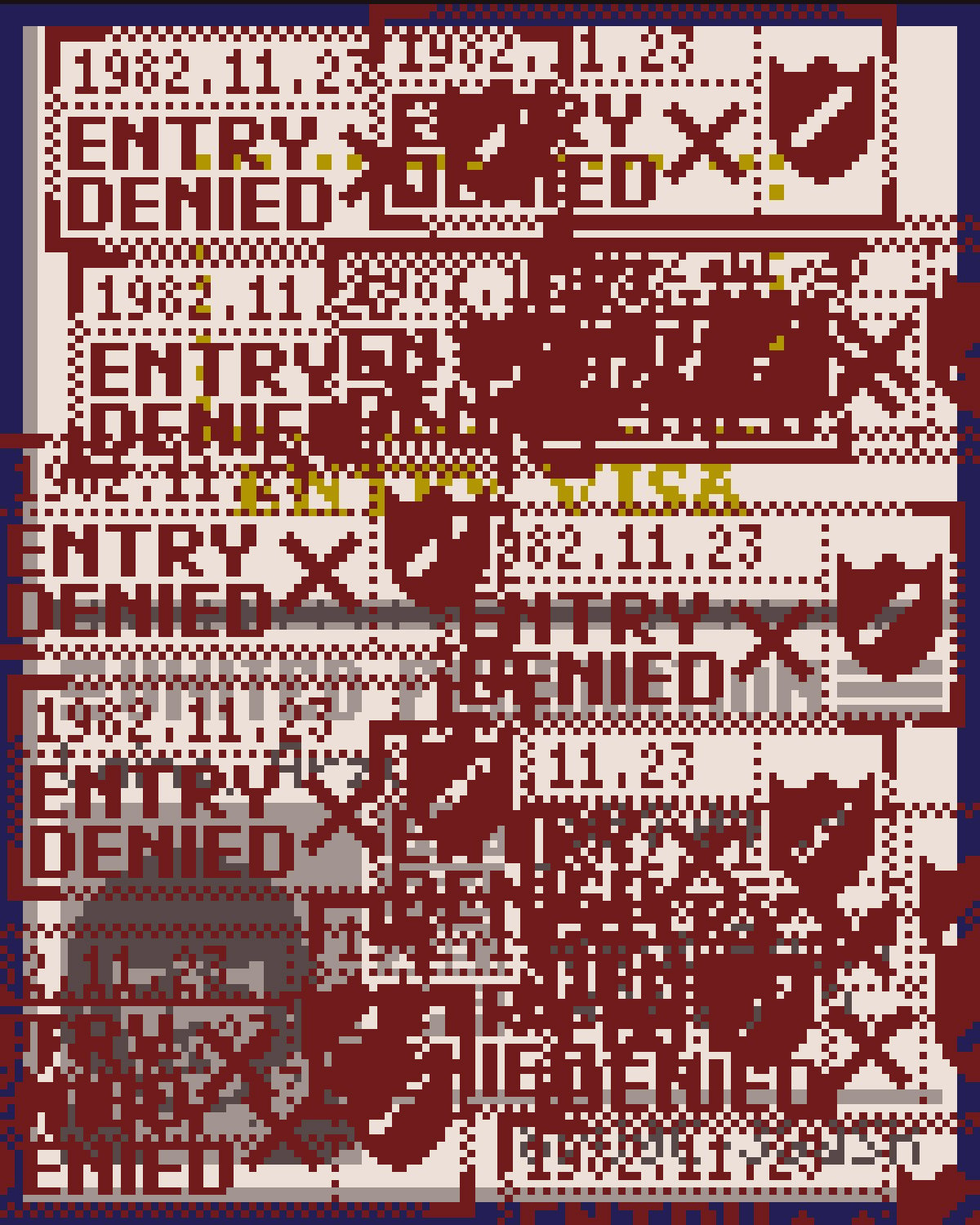
Pope does not claim that Papers, Please represents the complexities of international immigration policy “in anything other than a vastly simplified way.” Ultimately, he chose to highlight “some of the bigger talking points, and there are hints of real-world associations, but to keep things flexible, I figured it was best to not follow reality too closely.”
Looking back, Pope adds, “When I made the game in 2013, immigration as a topic was in the news but felt to me like an issue that had made some recent progress and was on track to get better. Unfortunately, that was all an illusion – the situation for immigrants and refugees has only gotten worse since then. In a perfect world, the game would’ve fallen out of relevance immediately, and we wouldn’t be talking about it anymore.”
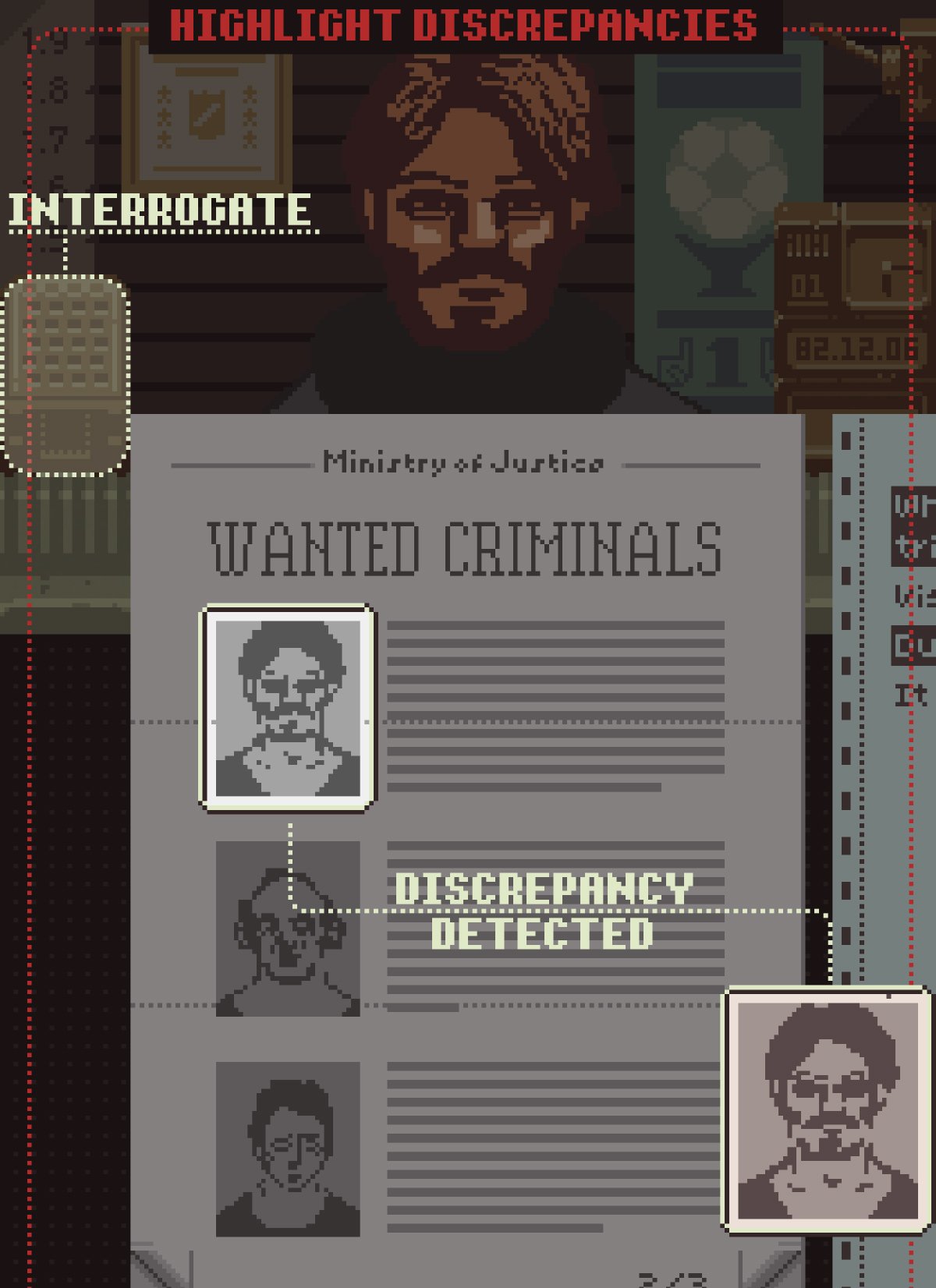
Papers, Please is a Cold War tale. When I first played the game, the opening lyrics of Yellow Magic Orchestra’s song “Ballet” played in my head. “Turning faded pages…She was a refugee from across the wall. Acting out a story written in Air.” You turn a lot of paper in the game. You also can’t help but make up stories about each person who appears at your window to present their passports and other documents.
For Pope, the entire premise was “…mostly inspired by the mechanical side of the game’s design. Just moving the papers around was fun for me personally, and so I did my best to build on that. What kinds of things would a resource-limited border inspector see? How would they be expected to react? How can these activities be turned into interesting things for the player to do? The concept and setting were enough to keep the ideas coming until I felt like I had a whole game.”
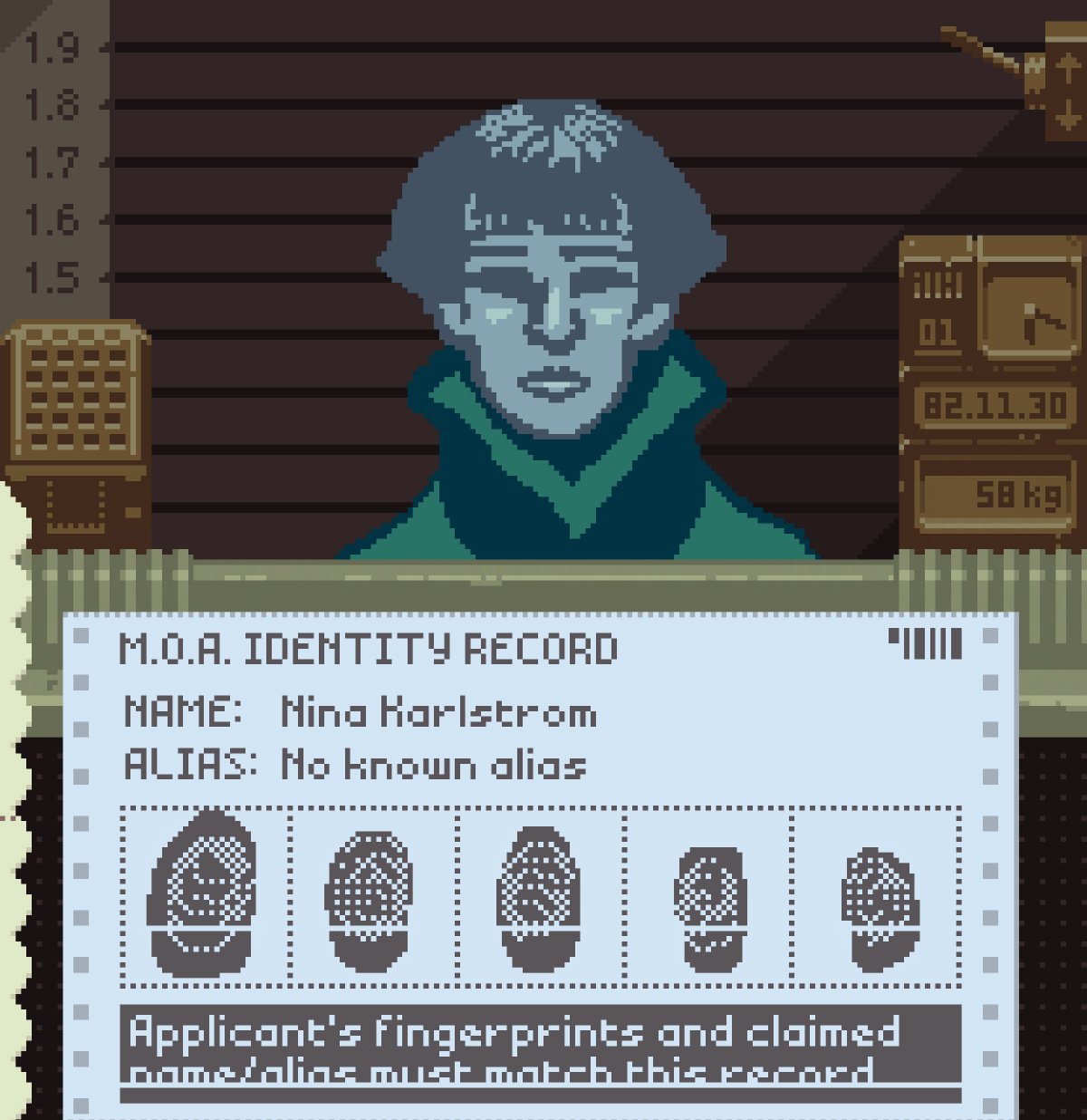
The earnestness of Papers, Please, overwhelms players. Waiting in line to be interviewed by an immigration official brings with it a feeling of uncertainty, maybe even insecurity. Readers of the German sociologist Max Weber might be familiar with how bureaucracy is dehumanizing by design. It must be impersonal to function at a large scale. Welcome to the machine. Pope doesn’t take this aspect of the system for granted.
Papers, Please forces players to make unethical decisions. I asked Pope what the gameplay loop at the heart of the game says about migration and border control. He responded, “Something I tried to capture in the game is the dehumanizing aspect of bureaucracy. I think border control is a good example of how rules made in one place in response to a political issue really look when they reach the actual people that enforce them and the people that are affected by them. Those bureaucracy-driven elements were convenient for the design too, where rules can change from day to day arbitrarily to ratchet up the pressure or direct the story.”
Oh, and how they change!
